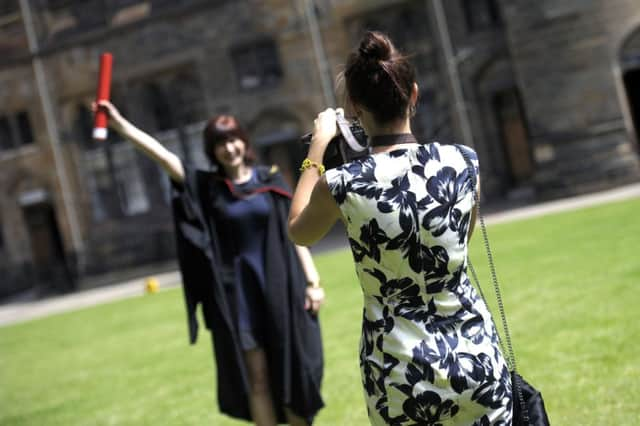Innovators get on with business


Who is a university for? It’s an interesting question and the answer invariably depends on who you ask. In the last week or so Universities Scotland has participated in interesting events which have focused on very different aspects of university activity: one which looked at increasing social mobility in Scotland; another which examined the ways in which universities work with business. Both are significant areas of responsibility for our universities and despite the major differences between these two issues, a unifying feature of both events was the high level of expectation placed on universities by stakeholders.
At the first event there was no doubt in the room that universities have an integral role to play in the delivery of higher levels of social mobility for Scotland, for working with schools and school children from the early years, and their parents, to raise attainment and aspiration to go to university. At the other event, partnerships between universities and businesses in one of Scotland’s key economic sectors were being discussed as vital to help Scotland become not just a leading innovation nation but the leading innovation nation. At both events, the expectation is that universities have a big role to play for very different parts of Scottish society and economy.
Advertisement
Hide AdAdvertisement
Hide AdUniversities willingly accept these significant responsibilities. The tone, expressed by university leaders at both events, was an appetite to get on and do the job. There was a complete acceptance of these roles as part of the mission of universities in the 21st century; a role much broader than a university of 20 or 30 years ago. Traditionally of course, a successful university was founded upon the functions of excellent teaching for students and research for the academic staff. Both remain at the core of our universities in Scotland. Teaching, and these days a definite focus on employability, is delivered for our student population. Research, protected by the principle of academic freedom, is led by our academic staff with the added benefits it provides for students whose education experience is informed by cutting-edge research.
Government is so far missing from this list. Universities are highly accountable for the public investment they receive from government, with strict lines of reporting. Universities also deliver significant returns for government with an overarching expectation the university sector will play a role in growing the economy for Scotland. Universities are also, rightly, expected to operate efficiently and make annual efficiency savings to government. Yet as autonomous institutions it is right that they should be independent of the state in their strategic and operational affairs.
The challenge for our institutions is to do all of these things, for different stakeholders, and do them well. These distinct, and sometimes competing, roles can pull universities in different directions. How universities are run, their structures of governance, are essential to their ability to fulfil these different roles.
As the role of a university has evolved and grown, so too have principles of governance. A thorough examination of governance has taken place in Scotland over the last four years. Over the last academic year in particular there has been a concentrated effort to enhance diversity, transparency and accountability. Staff and students are members of the governing body and so have a stake in the strategic direction of their institution. This role has been now been enhanced, for instance in relation to the appointment of chairs and principals. Universities are also fortunate to have a total of over 200 independent members, drawn from the public, private and third sectors sit on governing bodies across all of our universities. This brings a diversity of experience, skill and perspective. Governors must serve in the long-term interests of the institution, not themselves or who they were elected or appointed by. This model makes our universities successful, it also makes them responsive to all stakeholders without risk of becoming beholden to any one group.
• Alastair Sim is director of Universities Scotland, www.universities-scotland.ac.uk